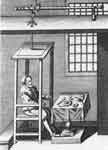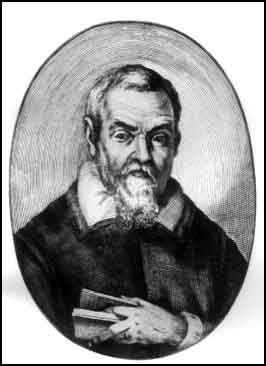|
Santorio Santorio (March 29, 1561 Koper – February 22, 1636 Venice), also called Santorio Santorii, Sanctorius of Padua, and various combinations of these names, was an Italian physiologist, physician, and professor. From 1611 to 1624 he was a professor at Padua where he performed experiments in temperature, respiration and weight. Sanctorius studied what he termed insensible perspiration and originated the study of metabolism. For a period of thirty years Sanctorius weighed himself, everything he ate and drank, as well as his urine and feces. He compared the weight of what he had eaten to that of his waste products, the latter being considerably smaller. He produced his theory of insensible perspiration as an attempt to account for this difference. His findings had little scientific value, but he is still celebrated for his empirical methodology. The "weighing chair," which he constructed and employed during this experiment, is also famous. He is credited with the design of the clinical thermometer, which he introduced in his Sanctorii Sanctorii Commentaria in primam fen primi libri Canonis Avicennae, a commentary on Avicenna's The Canon of Medicine. He invented a device which he called the pulsilogium for measuring the pulse which was the first machine system in medical history. A century later another physician, de la Croix, used the pulsilogium to test cardiac function. Sanctorius also invented an early waterbed. In 1614, he wrote De statica medicina, a medical text that saw five publications through 1737.
Santorio Santorio References and links * Santorio Sanctorius at the Science & Society Picture Library. * The first man/machine interaction in medicine: the pulsilogium of Sanctorius of Padua, J. Levett and G. Agarwal, Medical instrumentation 13 (Jan.-Feb. 1979), #1, 61–63. Abstract at PubMed * Sanctorius in the Columbia Electronic Encyclopedia (via Infoplease.) * Santorio Santorio at The Galileo Project Retrieved from "http://en.wikipedia.org/"
|
|


